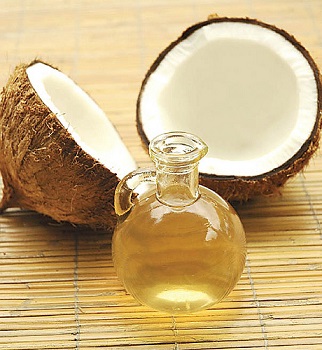There are two types of people when it comes to skin care. The first type is people who are obsessed on how their skin looks like and how it feels and they go to great lengths to achieve the desired results. The second type is those that think all face creams and lotions are the same and they can use any product as long as it keeps them fresh and has a nice feel to them. The majority of people have no idea what to look for in facial care products and they end up getting discouraged when they don’t get the desired results.
A cosmetology school in Toronto offers courses in esthetics and they ensure that their students are well aware of what needs to be put into consideration before giving clients facial treatments. In this article, we will emphasize on face oils and what role they play in ensuring that our skin stays healthy and maintains that glow. This will help you understand what your skin needs to minimize fine lines, heal cracked lips and zap zits.
Coconut oil

Coconut oil is known to be very good with parched flaky skin. You can use the kitchen grade coconut oil to moisturize very dry, sensitive and inflamed skin. It contains antibacterial properties and fatty acids both of which help to calm itchiness and redness and also to tame inflammation. You can use coconut as a regular face cream since coconut oil takes a solid form at room temperature.
Argan oil
For those who would like to turn back the clock, Argan oil is dermatology approved for its anti-ageing benefits. Consistent use of Argan oil decreases the appearance of fine lines. It contains a high concentration of anti-inflammatory agents like the vitamin E and omega 3 fatty acids which help to repair cell membranes. It also prevents oxidative damage to DNA and skin collagen which are the main factors that lead to skin aging. Argan oil is light in weight and absorbs fast into the skin so you can work it in your night skin care routine.
Grapeseed oil
This particular oil is good for the oily skin. Grapeseed oil prevents oil production and this is because it has the same properties that our skin oil does. How is this relevant? By applying Grapeseed oil onto our skin it tricks the system into thinking that there is already enough oil so it stops generating more. It also contains astringent properties that are known to make the skin tighter. There are traces of omega 6 fatty acids in Grapeseed oil that reduce inflammation and acne lesions. This leaves the skin moisturized but not greasy.
Jojoba oil
It is great for repairing combination skin. Just like Grapeseed oil, it controls the skin from producing too much oil while at the same time it helps to retain moisture. It also contains anti-inflammatory properties like copper, vitamin E, vitamin B and fatty acids that help with skin repair. It is easily absorbed in our skins and does not leave grease residue.
Tea tree oil
This oils help to fight skin break outs and is used to treat inflammatory acne lesions. Tea tree oils go deep into the skin and kill bacteria found in the pores and deep hair follicles where acne lesions begin. Before using the product it is important to note that Tea tree oil comes from natural plants so that means you may be sensitive or slightly allergic to it. Just to be safe ensure that you apply on a test spot like your inner arm to ensure that it is safe for you.
